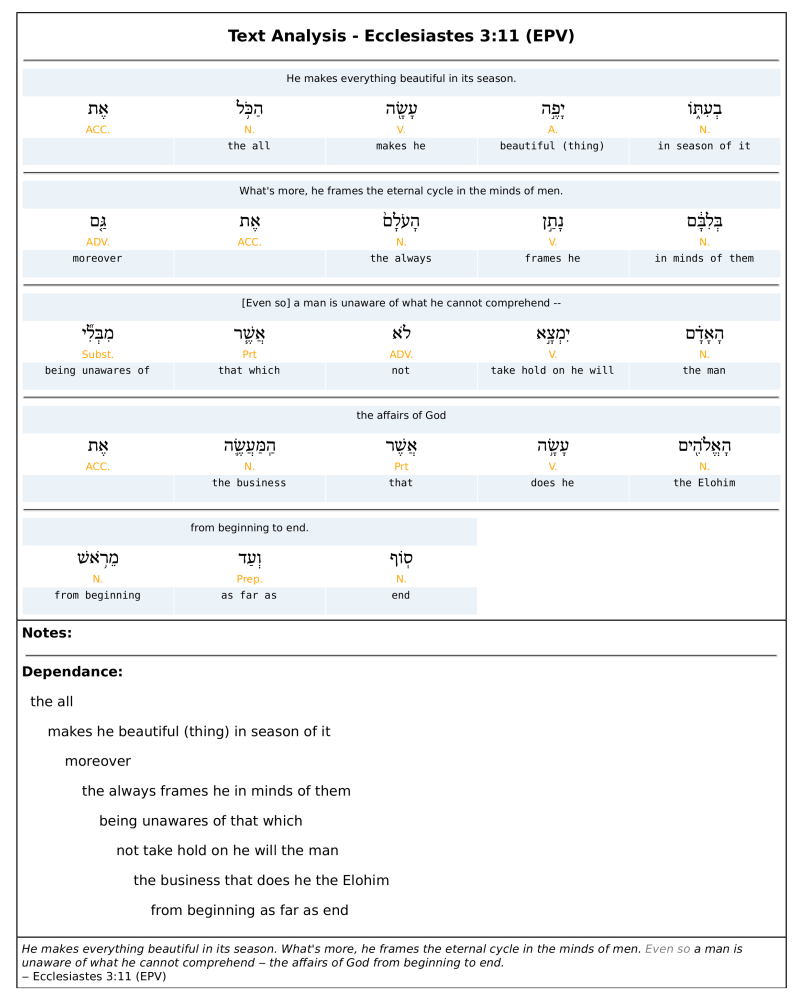The Masoretic Text of Ecclesiastes [= Qohelet/Kohelet] 3:11bα reads this way:
גַּ֤ם אֶת־הָעֹלָם֙ נָתַ֣ן בְּלִבָּ֔ם
gam ʾet-hāʿōlām nātan bəlibbāmᵃ
Also he has put העלם in their heart
ᵃ antecedent is bənê hāʾādām in 3:10.
This has traditionally been read as indicated in the transliteration above -- as if it is a defective writing of what normally appears as עוֹלָם = ʿôlām "eternity", including the holem-waw. This form unambiguously occurs at one (other) place in the Hebrew Bible, in 1 Chronicles 16:36.
In the context of the verse as a whole, however, this appears to some commentators to yield poor sense, e.g., NASB =
... He has also set eternity in their heart, yet so that man will not find out the work which God has done from the beginning even to the end.
since the "result" ("...so that...") does not seem to match the "gift".
- Can the traditional understanding be construed to give good sense?
- If not, how else could the Hebrew text be plausibly explained?
This Q&A is prompted by the partner on the Greek text: "What did God put into the heart of man according to the LXX in Ecclesiastes 3:11?"
